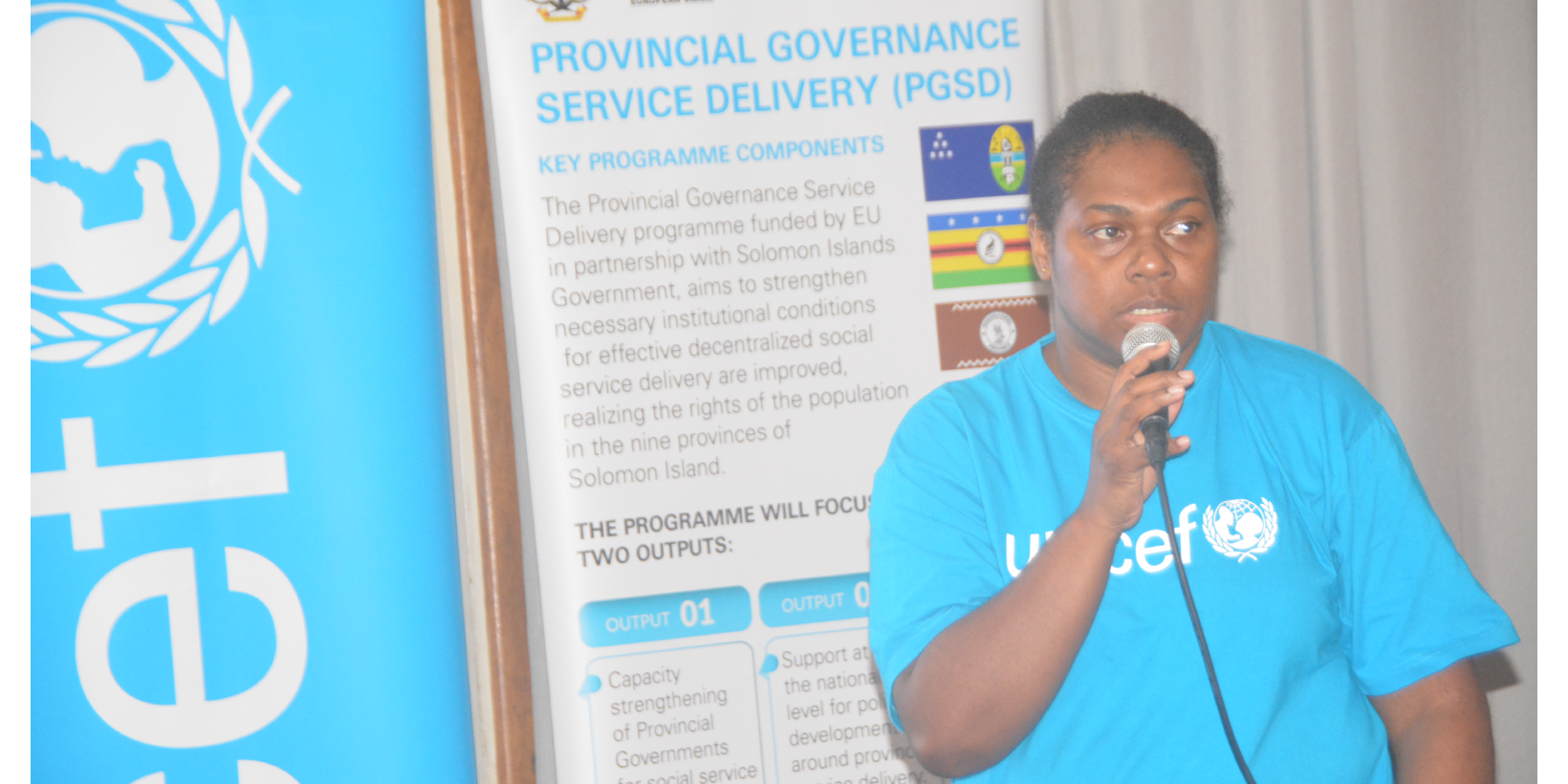The United Nations Children’s Fund (UNICEF) has reaffirmed its commitment to strengthening social service delivery in the Western Province (WP) by working in partnership with the Solomon Islands Government (SIG) and the Provincial Government.
This commitment was highlighted during the opening of a three-day capacity-building workshop in Gizo on Tuesday, October 21, 2025.
The workshop, focused on strengthening social service delivery in the province, brought together the Premier, Permanent Secretary, Senior Government Officials, UNICEF representatives, colleagues from UNICEF, Ward Development Chairmen (WDC), Ward-Support Officers (WSO), CSO representatives, and other ladies and gentlemen.
In her remarks, UNICEF Solomon Islands Social Policy Officer, Courtney Wale thanked all participants for their attendance and their continuous work on building capacity for service delivery at the provincial level.
UNICEF’s engagement is backed by the Pacific Social Policy Team and is a partnership with the Ministry of Provincial Government and Institutional Strengthening (MPGIS) and the Western Provincial Government, funded by the European Union.
Courtney noted that UNICEF provides essential technical support to ensure sound planning, budgeting, implementation, and monitoring for three specific areas: WASH (Water, Sanitation, and Hygiene), Health, and Education.
During the three days session participants have the opportunity to enhanced their knowledge and understanding, focusing on better planning and budgeting of projects.
They will also delve into areas where greater investment in social services is urgently needed, guided by the provincial three-year development plan.
The UNICEF official highlighted the organisation’s core commitments which underpin its work in the Solomon Islands. These include:
Survival and well-being: Access to nutritious diets, quality health care, and essential supplies.
Learning and skills development: Ensuring children acquire skills for the future.
Protection: Protection from violence, exploitation, abuse, neglect, and harmful practices.
Safe environment: Access to safe water, sanitation, hygiene, and a sustainable climate and environment.
The workshop is also expected to facilitate discussions on the three-year development plan, giving participants an opportunity to see where they are in terms of planning and which areas require more attention.
By ULUTAH GINA
Solomon Star Gizo








